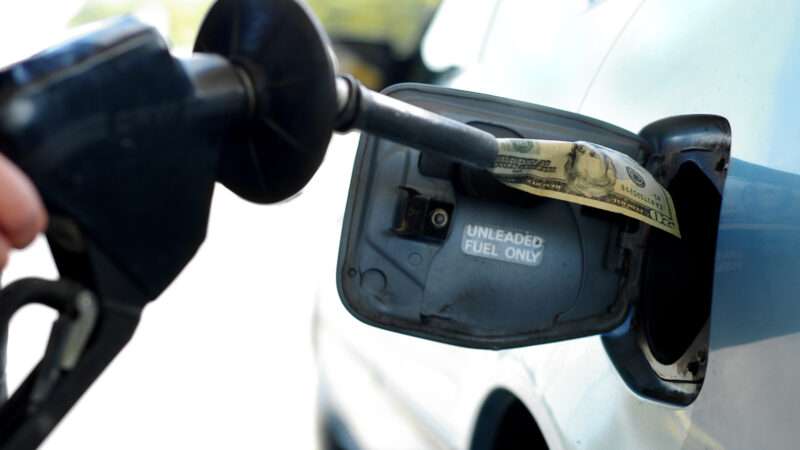
When the clock strikes midnight and the calendar turns to 2025, some Americans will start paying more for gas or other energy needs. Several states are enacting tax hikes that take effect on January 1, causing higher energy costs. Even electric vehicle (E.V.) owners won't be spared.
California will see significant increases at the gas pump in the coming year. In November, the California Air Resources Board (CARB) amended the Low Carbon Fuel Standard, a state program designed to decrease greenhouse gas emissions from the transportation sector. The agency accelerated carbon dioxide reduction targets, created new credits for zero-emission vehicles, and placed caps on biofuels qualifying for Low Carbon Fuel Standard credits. An assessment from CARB estimated that these changes will increase the cost of gasoline by 47 cents per gallon and the price of diesel by 59 cents per gallon in 2025.
Minnesota will also see higher gas prices, albeit lower than California. In 2025, the state will increase its motor fuel tax on diesel, biodiesel, and gasoline from 28.5 cents per gallon to 31.5 cents per gallon. Ethanol will rise to 22.59 cents per gallon (up from 20.25 cents per gallon) and alternative fuel rates will also increase, according to the Tax Foundation. Revenue generated from these taxes will fund state infrastructure projects.
E.V. owners in Wisconsin and Vermont will also see higher costs in the new year. Starting January 1, Vermont will require drivers of these vehicles to pay an annual E.V. infrastructure fee of $89, in addition to the state's $89 annual registration fee for all vehicles. Plug-in hybrid owners will be forced to pay $44.50 in addition to the $89 registration surcharge. This tax will sunset upon the implementation of a mileage-based user fee.
In Wisconsin, E.V. drivers will pay an excise tax of 3 cents per kilowatt hour (kWh) of electricity used at a public charging station. Under this tax, charging a 50 kWh battery, available in some Tesla Model 3s, will cost an additional $1.50. This is far less than the state's gas tax of nearly 33 cents per gallon, which adds $5 to the cost of filling up a 15-gallon gas tank.
The New Mexico Legislature approved tax credits for geothermal generation (up to $5 million annually) and battery or solar and wind power manufacturing (up to $25 million annually) that will take effect in 2025. In the new year, residents will also be able to enjoy a one-time tax credit of $3,000 for new E.V.s or $2,000 for new plug-in hybrids. Similar programs in other states have led to taxpayers footing the bill for wealthy consumers to buy E.V.s.
As many states use the tax code to pick winners and losers, Louisiana has adopted technology-neutral full expensing. Also called immediate expensing, this allows firms to deduct capital costs and research and development expenses in the year they occurred rather than over a lengthy depreciation period. Full expensing reduces the cost of doing business and encourages investments in energy research in development. With a state economy heavily dependent on the oil and gas sector, lowering capital expenses and accelerating innovation will lower energy costs for Louisianans.
While public attention may be focused on federal tax reform and expiring aspects of the Tax Cuts and Jobs Act, state governments are already implementing policies that, in many cases, will increase energy costs. Reducing the reach of state and federal governments and adopting pro-growth reforms, as Louisiana has, will lower prices and leave Americans better off.
The post State Tax Hikes Set To Raise Energy Costs in 2025 appeared first on Reason.com.







